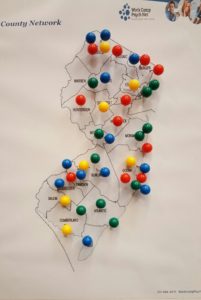In 2014, workers’ compensation loss costs (indemnity wage replacement plus medical benefits) totalled $62.3 billion, nationally, while Social Security Disability Insurance (SSDI) paid $141.5 billion in wage replacement benefits to disabled persons and their dependents. In the same year, 10.3 1.3* million disabled workers qualified for both workers’ compensation and SSDI wage replacement. They are dually eligible for both programs given their on the job injuries.
If a worker becomes eligible for both SSDI and workers’ compensation cash benefits, one or both programs will reduce benefits to avoid making excessive payments relative to the worker’s past earnings. Social Security amendments passed in 1965 require SSDI benefits to be reduced so the combined total of payments does not exceed 80% of the injured worker’s pre-injury wages.
However, prior to the 1965 amendments, fifteen states, including New Jersey, had passed what are called “reverse offset” laws, which required that it is the workers’ compensation benefits, rather than SSDI’s, which are reduced to stay under the 80% cap. The reverse offset laws were grandfathered into the 1965 amendments. This produces millions of dollars in savings per year for insurers and employers.
A bristly fly has just done a swan dive into the reverse offset ointment. President Trump’s proposed budget calls for eliminating the reverse offset law. If this provision makes it into the final budget proposal, New Jersey employers would face the prospect of not insignificant increases in total loss costs. Thousands of injured workers in the state are dually eligible for workers’ compensation and SSDI benefits. No one knows for sure the exact number, because Social Security doesn’t have a good verification program. The president’s budget estimates eliminating the reverse offset law would save $164 million over ten years, all of which would come from the 15 states that would lose the reverse offset advantage.
If you’d like to know more about the reverse offset inside baseball game, the National Academy of Social Insurance has an excellent description on page 48 of its October, 2016, workers’ compensation annual report.
Thanks to Work Comp Central’s Elaine Goodman for a story on this issue (subscription required).
*Thanks to Mathematica’s Yonatan Ben-Shalom for catching this typographical error.

